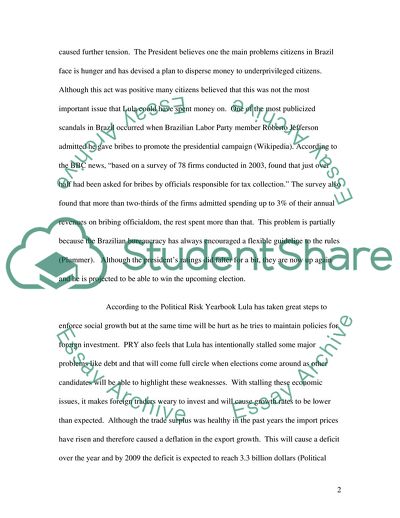Cite this document
(Political and Economic Risk for Brazil Essay Example | Topics and Well Written Essays - 1500 words - 1, n.d.)
Political and Economic Risk for Brazil Essay Example | Topics and Well Written Essays - 1500 words - 1. https://studentshare.org/social-science/1703360-political-and-economic-risk-for-brasil
Political and Economic Risk for Brazil Essay Example | Topics and Well Written Essays - 1500 words - 1. https://studentshare.org/social-science/1703360-political-and-economic-risk-for-brasil
(Political and Economic Risk for Brazil Essay Example | Topics and Well Written Essays - 1500 Words - 1)
Political and Economic Risk for Brazil Essay Example | Topics and Well Written Essays - 1500 Words - 1. https://studentshare.org/social-science/1703360-political-and-economic-risk-for-brasil.
Political and Economic Risk for Brazil Essay Example | Topics and Well Written Essays - 1500 Words - 1. https://studentshare.org/social-science/1703360-political-and-economic-risk-for-brasil.
“Political and Economic Risk for Brazil Essay Example | Topics and Well Written Essays - 1500 Words - 1”. https://studentshare.org/social-science/1703360-political-and-economic-risk-for-brasil.


